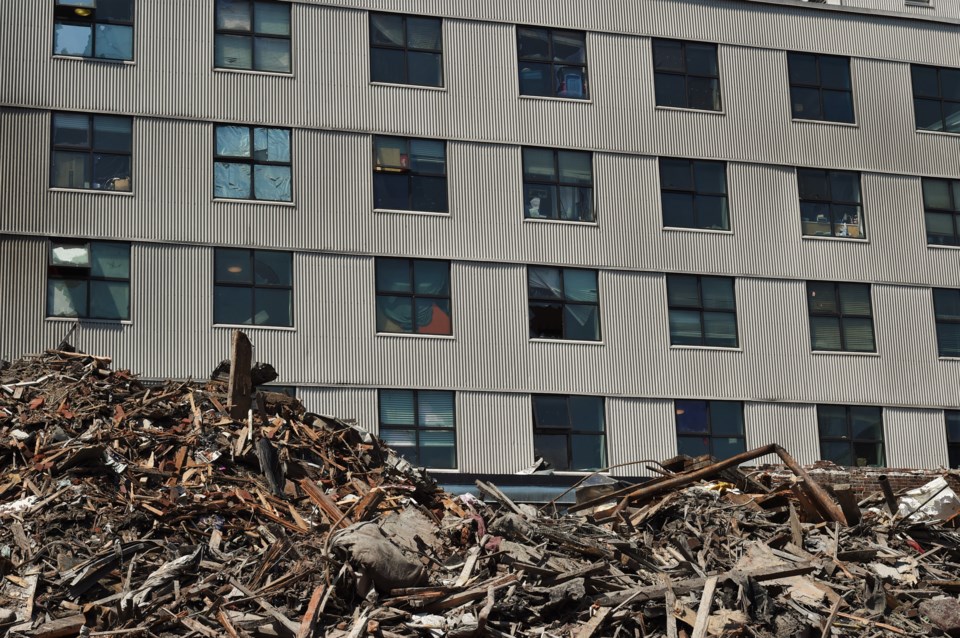A five-person jury is deliberating after hearing 29 witnesses testify over nine days in Burnaby coroner’s court about the Winters Hotel disaster.
The bodies of tenants Mary Ann Garlow, 63, and Dennis James Guay, 53 were found in the rubble of the single-room occupancy Gastown building, after the devastating April 11, 2022 blaze. Fire sprinklers were not working at the time of the fire, which started due to an errant candle.
On Friday morning, presiding coroner John Knox instructed the jury, which is responsible for finding facts and making recommendations to prevent a similar tragedy.
“This inquest was called as a means for public ascertainment of the facts relating to these deaths,” Knox said. “You must not make any findings of legal responsibility, nor express any conclusions of law. Your findings must not blame or vindicate any person or agency.”
Knox told the jury it must disregard any public reporting and base its decisions solely on the evidence heard and exhibits submitted during the hearings. He told them any recommendations must be directed at the appropriate person, organization or agency and that the recommendations would be forwarded to the Chief Coroner, Lisa Lapointe, who may bring them to the attention of the appropriate person, agency or ministry.
“You are not required to make recommendations but if you do, carefully consider the wording to ensure that they are reasonable, achievable and practical,” Knox said. “A few meaningful recommendations focused on addressing broader failures of systems and standards can be much more effective than a number of recommendations addressing unique circumstances.”
The jury must also classify the deaths of Garlow and Guay. Knox reminded the jury of evidence from coroner identification specialists and police, that the victims were identified by comparing their DNA profiles with that of samples provided by closely related family members.
Garlow and Guay died of thermal injuries and smoke inhalation due to a residential fire, likely on the same day as the fire, but nobody who testified could provide a specific time. Knox said neither of the deaths could be classified as natural and that there was no evidence of any self-inflicted injuries or injuries inflicted by another person.
Earlier this week, the inquest heard from Chauncey Carr, a manager with Atira Property Management, who said he did not know if there ever was a fire drill at the building or a mass-evacuation plan.
“In hindsight, I didn't realize how dangerous the Winters was, it's a 113-year-old building,” Carr testified. “By modern standards, I don't know if those plans would have ever been approved with the open atrium style, with the building materials that were used. It was an old fire panel system.”
Heidi Hartman, an associate vice-president with BC Housing, said the operational review of the hotel was delayed by the pandemic and she was unaware of any independent review of the building’s condition, including its antiquated fire safety systems, prior to contracting Atira in 2017.
“We also know that some of the conditions might not be ideal, but the important thing is that we're bringing people in, putting a roof over their head and connecting them to services,” Hartman testified. “We would all love permanent, purpose-built housing.”



